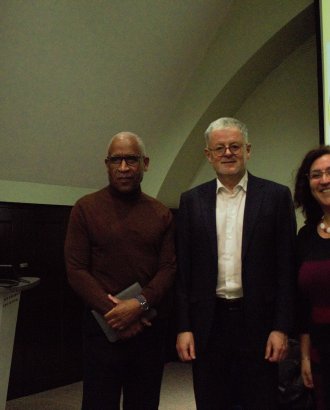As part of the application process, depending on the subject applied for, you may be asked to submit written work in advance of the interview – usually by early November.
Please note that the below information is correct for the 2023-24 admisisons round. This page will be updated in Summer 2024 with information on written work requirements for the 2024-25 admissions round.
Who needs to submit written work?
Only applicants who have applied for the following subjects need to submit written work:
Anglo-Saxon Norse and Celtic; Archaeology; Architecture; Asian and Middle Eastern Studies; Classics; Design; Education; English; History; History and Modern Languages; History and Politics; History of Art; Human, Social and Political Sciences; Modern and Medieval Languages; Music; Theology, Religion and Philosophy of Religion
For further information on the written work requirements for each of these subjects please see the pdf document available under 'Downloads' on this page.
If your subject is not listed above, you are not required to submit any written work.
Guidelines for submitting written work
- Written work should normally be in the form of essays, pieces of project or coursework, written as part of your routine studies at school and marked by a teacher. It must not be specifically written for your application. For this reason, we do not give suggested word limits, but please avoid sending extended pieces of work. As a guide, written work should not exceed more than 2500 words. If you are submitting work as part of an essay, then we ask you to please pick an extract that does not exceed the limit.
- Written work should be submitted as scanned copies of the original essays and not re-typed or re-written.
- The content of your work may be discussed at the interview, so you should choose topics that interest you and which you are prepared to talk about. Try to make sure that it is representative of your best work and keep a copy of anything you send us so that you can read it again before coming to the interview. You will not be 'tested' on its content, but you should be reasonably familiar with what you have written.
- If you do not have written work that relates to the course you are applying for, work that shows your analytical writing will normally be fine. Again, we don't want you to write anything specifically for Cambridge.
- If English isn't your first language, please note that any examples of written work requested must be submitted in English – either translated into English (and then verified by your school or a suitable third party), or piece(s) originally written in English.
How should the written work be submitted?
Shortly after the UCAS deadline, applicants are provided with further details of how to send the written work to the College. You will be asked to attach a signed cover sheet to each piece of work that you submit.
Frequently asked questions
Q. According to the information on the webpage, I am required to send one or two examples of my work. Will there be any disadvantage during my application process if I send one piece of work instead of two?
It won’t disadvantage your application if you only send one example of your work, but if you send two it will give a good overview of your abilities.
Q. Is it advisable to submit one unseen literary comparison and one more focused essay? Or would you prefer two essays on texts that have been formally studied?
We would prefer to receive two essays on texts that have been formally studied. But, should you decide to submit one unseen literary comparison, you should include the texts that are being commented on.
Q. I am considering sending a Spanish essay as part of my written work to study Education. Would a translation into English by myself and signed as correct by my teacher alongside the original be alright?
Yes, this will be acceptable to submit.
Q. If I am applying while on a gap year, what written work should I submit?
If you are applying during a gap year, please submit written work from your last year in education.




